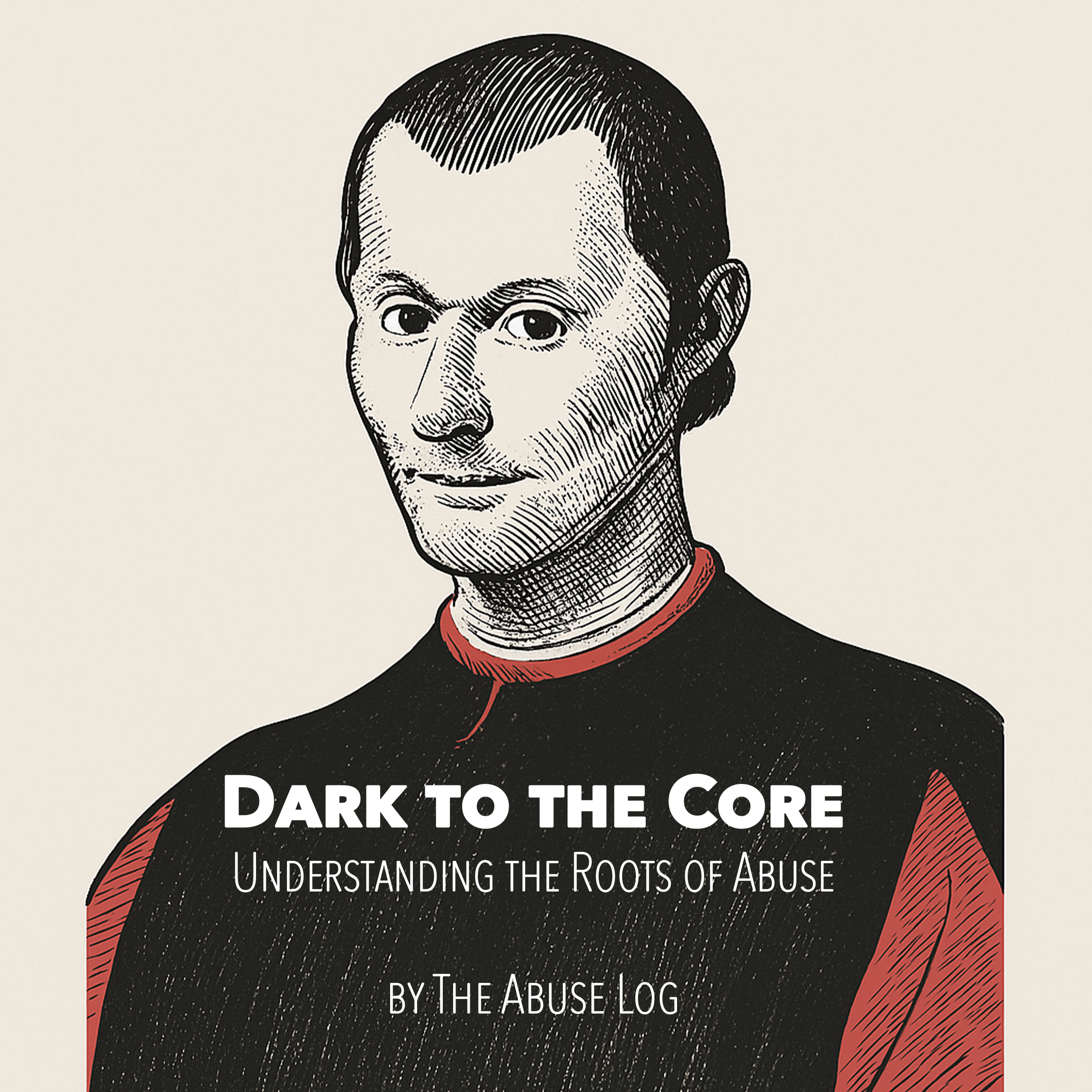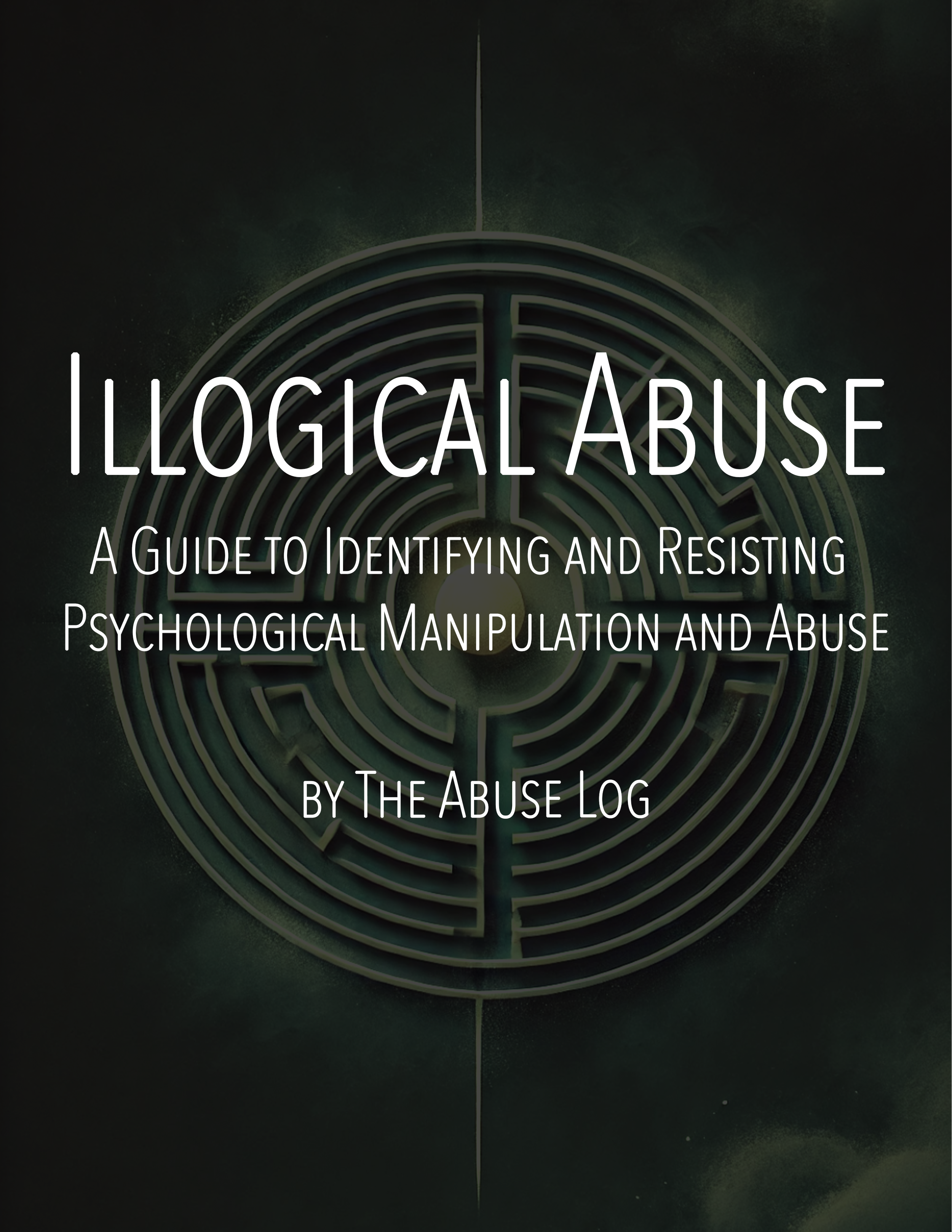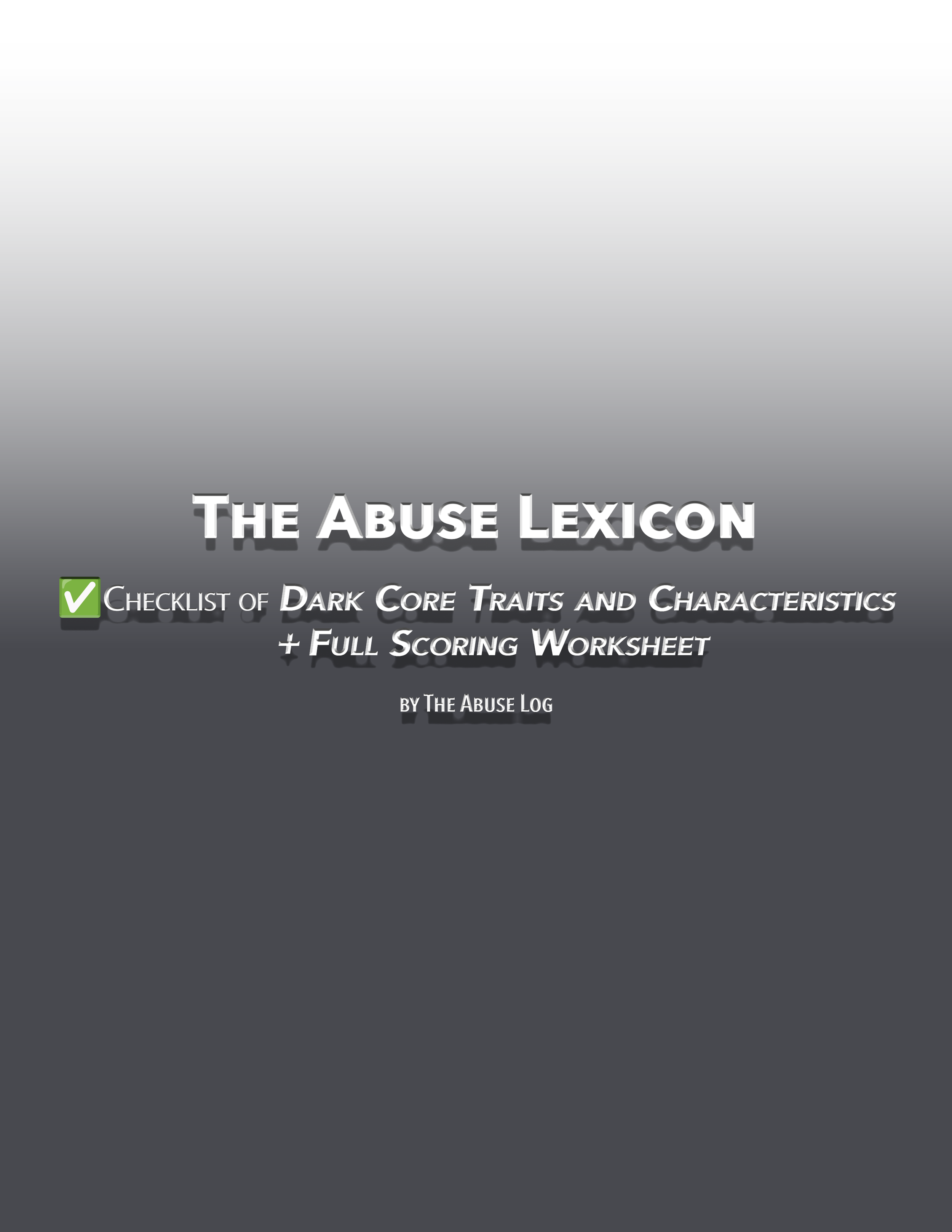Parental Alienation. Everything you need to know.
“Children are not their parents' property, but when the parents treat them like property, that is attachment, not love.” - Unknown
What do you tell your child who calls and asks, "When can I see you again?"
The characteristics of an Parental Alienator are:
⬜️ They are obsessed with destroying the children's relationship with the targeted parent.
⬜️ They having succeeded in enmeshing the children's personalities and beliefs about the other parent with their own.
⬜️ The children will parrot the obsessed alienator rather than express their own feelings from personal experience with the other parent.
⬜️ The targeted parent and often the children cannot tell you the reasons for their feelings.
⬜️ Their beliefs sometimes becoming delusional and irrational. No one, especially the court, can convince obsessed alienators that they are wrong. Anyone who tries is the enemy.
⬜️ They will often seek support from family members, quasi-political groups or friends that will share in their beliefs that they are victimized by the other parent and the system. The battle becomes "us against them." The obsessed alienator's supporters are often seen at the court hearings even though they haven't been subpoenaed.
⬜️ They have an unquenchable anger because they believe that the targeted parent has victimized them and whatever they do to protect the children is justified.
⬜️ They have a desire for the court to punish the other parent with court orders that would interfere or block the targeted parent from seeing the children. This confirms in the obsessed alienator's mind that he or she was right all the time.
⬜️ The court's authority does not intimidate them.
⬜️ The obsessed alienator believes in a higher cause, protecting the children at all cost.
⬜️ The obsessed alienator will probably not want to read what is on these pages because the content just makes them angrier.
Parental Alienation
⬜️ Emotional Manipulation: The alienating parent uses emotional manipulation to control the child’s feelings and perceptions towards the targeted parent.
⬜️ Gaslighting: The alienating parent distorts reality and undermines the child’s trust in the targeted parent by making them doubt their own perceptions and memories.
⬜️ Badmouthing: The alienating parent speaks negatively about the targeted parent to the child, portraying them as incompetent, uncaring, or dangerous.
⬜️ Limiting Contact: The alienating parent restricts or interferes with the child’s contact with the targeted parent, preventing them from spending time together or communicating freely.
⬜️ Undermining Authority: The alienating parent undermines the authority of the targeted parent by disregarding their rules, decisions, or boundaries in front of the child.
⬜️ False Allegations: The alienating parent makes false accusations of abuse or neglect against the targeted parent, creating fear or distrust in the child’s mind.
⬜️ Emotional Blackmail: The alienating parent uses guilt, fear, or threats to manipulate the child into complying with their wishes or aligning against the targeted parent.
⬜️ Alienating Language: The alienating parent uses derogatory or alienating language when referring to the targeted parent, reinforcing negative perceptions and attitudes.
⬜️ Reward/Punishment: The alienating parent rewards the child for aligning with them and punishes them for showing loyalty to the targeted parent, creating a sense of loyalty conflict.
⬜️ Interfering with Communication: The alienating parent intercepts or monitors communication between the child and the targeted parent, controlling the flow of information and distorting the child’s perceptions.
⬜️ False Promises: The alienating parent makes promises or offers rewards to the child in exchange for their allegiance or compliance in the alienation process.
⬜️ Encouraging Dependency: The alienating parent fosters a sense of dependency in the child, making them rely solely on them for emotional support and validation.
⬜️ Undermining Relationships: The alienating parent undermines the child’s relationships with extended family members or friends associated with the targeted parent, isolating them further.
⬜️ Scapegoating: The alienating parent blames the targeted parent for all problems or difficulties in the family dynamic, demonizing them and absolving themselves of responsibility.
⬜️ Cultivating Fear: The alienating parent instills fear in the child about the consequences of maintaining a relationship with the targeted parent, creating anxiety or distress.
⬜️ Triangulation: The alienating parent involves third parties, such as new partners or authority figures, to reinforce their negative portrayal of the targeted parent and gain validation for their actions.
⬜️ Psychological Warfare: The alienating parent engages in psychological warfare tactics, such as mind games or manipulation techniques, to exert control over the child’s thoughts and behaviors.
⬜️ Distorting Memories: The alienating parent distorts or fabricates memories of past events involving the targeted parent, influencing the child’s perception of their relationship history.
⬜️ Creating Loyalty Binds: The alienating parent creates loyalty binds by forcing the child to choose between them and the targeted parent, fostering a sense of obligation or guilt.
⬜️ Denigrating Affection: The alienating parent denigrates displays of affection or positive interactions between the child and the targeted parent, minimizing their importance and discouraging bonding.
⬜️ Creating Dependency: Encouraging the child to rely solely on the alienating parent for emotional support, fostering emotional dependency
⬜️ Behaviour Modification Techniques: Use conscious or unconscious behavioural modification techniques involves a rewarding alignment with their views or punishing the child’s expressions of positive feelings towards the targeted parent
⬜️ Intruding on Time Child Spends with Targeted Parent: Disrupting and interfering with the quality time the child spends with the targeted parent, undermining the parent-child relationship
⬜️ Forcing the Child to Reject Affection: Pressuring the child to reject displays of affection or love from the targeted parent, creating emotional distance
⬜️ Using Threats: Issuing warnings of harm or negative consequences to coerce compliance or silence from the child
⬜️ Gift-Giving or Material Inducement: Use gifts or material inducements to influence the child’s perception, creating a sense of obligation or gratitude, hindering the child’s ability to form an unbiased relationship with the targeted parent
⬜️ Using Physical or Sexual Abuse: Employing physical or sexual violence to intimidate and control the child
⬜️ Using Intimidation: Employing fear-inducing tactics to make the child feel threatened or unsafe
⬜️ Gaslighting: Manipulating the child’s reality, causing them to doubt their perceptions, sanity, or experiences
⬜️ Social Reinforcement: The social circle around the child contributes to the alienation process with friends, extended family, or others close to the alienating parent reinforces a negative narrative about the targeted parent
⬜️ Smear Campaigns: Conducting deliberate and systematic campaigns to denigrate the targeted parent through false narratives, character assassination, or negative portrayals
⬜️ Exploiting Child’s Vulnerabilities: Identifying and exploiting the child’s emotional vulnerabilities to manipulate their perceptions and behaviors
⬜️ Physical Distance + Proximity: Limiting physical contact or affection between child and targeted parent, sending indirect signals to the child that closeness with the other parent is unacceptable or unsafe
⬜️ Economic Abuse: Controlling or exploiting financial resources in a way that affects the child’s well-being or sense of security
⬜️ Isolation: Restricting the child’s social connections, limiting their interactions with others, and fostering a sense of isolation
⬜️ Monitoring and Surveillance: Invading the child’s privacy through surveillance, fostering a sense of constant scrutiny
⬜️ Rewriting History: Providing the child with a distorted or biased version of past events to shape their understanding of the relationship with the targeted parent
⬜️ Forced Loyalty Tests: Imposing situations or conversations designed to test and enforce the child’s loyalty to the alienating parent, often at the expense of the targeted parent
⬜️ Conditional Love: Making the child feel that love and approval are contingent upon aligning with the alienating parent’s views or demands
⬜️ Supervised Visits to Vilify Targeted Parent: Utilizing supervised visits as a means to denigrate the targeted parent, making the child feel scrutinized or uncomfortable
⬜️ Routine and Environment: Consistent exposure to a negative environment the alienating parent has created towards the targeted parent impacts the child’s beliefs and attitudes
The effects of Parental Alienation on children and families
⬜️ Emotional trauma and psychological distress for the alienated parent, child, and extended family members.
⬜️ Loss of a meaningful and loving relationship between the alienated parent and child, leading to feelings of grief, abandonment, and rejection.
⬜️ Long-term psychological effects on the child, including low self-esteem, depression, anxiety, and difficulty forming healthy relationships.
⬜️ Disrupted family dynamics and strained relationships between siblings, grandparents, and other relatives.
⬜️ Legal battles and custody disputes that can be emotionally and financially draining for both parents.
⬜️ Increased risk of behavioral problems, substance abuse, or delinquency in children who experience parental alienation.
⬜️ Difficulty trusting others and forming attachments in future relationships due to unresolved issues from childhood.
⬜️ Negative impact on academic performance and social development in children affected by parental alienation.
⬜️ Inability to develop a healthy sense of identity and self-worth when one parent is systematically denigrated or marginalized.
⬜️ Loss of support networks and resources for both the alienated parent and child, as friends and family may take sides or distance themselves from the situation.
⬜️ Ongoing conflict and hostility between parents, making it challenging to co-parent effectively and make decisions in the child’s best interests.
⬜️ Increased risk of physical and emotional abuse in situations where the alienating parent exerts control over the child’s perceptions and behaviors.
⬜️ Difficulty maintaining a sense of stability and security for the child when their relationship with one parent is undermined or severed.
⬜️ Impact on the alienated parent’s ability to bond with and care for their child, leading to feelings of helplessness and inadequacy.
⬜️ Loss of financial support or resources when one parent is alienated or excluded from the child’s life.
⬜️ Isolation and social stigma for the alienated parent, who may feel judged or blamed for the breakdown of the relationship with their child.
⬜️ Inability to participate in important milestones and events in the child’s life, such as birthdays, graduations, or holidays.
⬜️ Loss of cultural or familial heritage and identity when children are prevented from maintaining connections with both sides of their family.
⬜️ Increased risk of parental estrangement in adulthood when unresolved issues from childhood persist into later life.
9 covert behaviors and tactics of a narcissistic mother who alienates her husband from their children
⬜️ Gaslighting: Manipulating the family’s perception of reality, making them doubt their own memories and experiences.
⬜️ Triangulation: Creating divisions within the family by playing one member against the other, fostering mistrust and resentment.
⬜️ Emotional Manipulation: Using guilt, shame, and fear to control and manipulate family members’ emotions and behaviors.
⬜️ Invalidation: Dismissing or belittling the feelings and experiences of family members, making them feel insignificant and unworthy.
⬜️ Playing the Victim: Portraying herself as the victim in every situation, deflecting blame and responsibility onto others.
⬜️ Selective Affection: Showing affection and attention only when it serves her needs, neglecting or ignoring family members otherwise.
⬜️ Micromanaging: Exerting excessive control over every aspect of family life, leaving little room for independence or autonomy.
⬜️ Isolating: Sabotaging relationships outside the family unit, isolating family members from friends and support networks.
⬜️ Emotional Blackmail: Using threats of abandonment or withdrawal of affection to manipulate family members into compliance.
Statements from a Narcissistic Mother who is OVERTLY alienating her husband. She is speaking to her daughter These statements manipulate perceptions of the father, casting doubt on his character and intentions, while positioning the herself as a protector or bearer of truth.√ Check all the boxes that resonate:
Statement 1: “Your father doesn’t love us anymore. It’s just you and me against the world.”
Statement 2: “Your father is selfish and only cares about himself. You can’t trust him.”
Statement 3: “I’m the only one who truly understands you. Your father will never understand.”
Statement 4: “Your father is trying to turn you against me. Don’t let him poison your mind.”
Statement 5: “Your father is weak and incompetent. We’re better off without him.”
Statement 6: “I’m protecting you from your father’s toxic influence. You should be grateful.”
Statement 7: “Your father is too busy for us. We don’t need him in our lives.”
Statement 8: “Your father doesn’t appreciate all the sacrifices I’ve made for you.”
Statement 9: “Your father is trying to replace me with someone else. Don’t let him.”
Statement 10: “I’m the only parent you need. Your father is irrelevant.”
Statement 11: “Your father doesn’t care about you like I do. He’s never there when you need him.”
The same Narcissistic Mother who is OVERTLY alienating her husband. Now she is speaking directly to him
Statement 1: “Even our children see how pathetic you are compared to other fathers.”
Statement 2: “Our kids are embarrassed by you; they deserve better.”
Statement 3: “I’m the only reason our children have any respect for you at all.”
Statement 4: “Our kids would be better off if you weren’t in their lives; you’re just a disappointment to them.”
Statement 5: “I have to make up for your shortcomings as a parent; you’re lucky I’m here.”
Statement 6: “Our children know you’re weak, and it’s only a matter of time before they lose respect for you completely.”
Statement 7: “I can’t believe I have to raise our kids with someone as incompetent as you.”
Statement 8: “You’re setting a terrible example for our children; they’re going to end up just like you.”
Statement 9: “Our kids would be better off if they had a real father, not someone like you.”
Statement 10: “You’re such a disappointment to our children; they’d be happier if you weren’t around.”
Statement 11: “Your family can’t stand you either; they just tolerate you out of pity. Every one of them talks behind your back about how worthless you are.”
Statement 12: “You’re the black sheep of your family, and they all know it. Your family thinks you’re a failure, just like I do.”
Statement 13: “Your parents must regret ever bringing you into this world. I’ve heard your family members laugh about what a disappointment you are.”
Statement 14: “Your siblings are ashamed to be related to you; they’ve told me themselves.. Your family gatherings are just opportunities for them to gossip about you when you’re not around.”
Statement 15: “Your parents must wish they had a different son; I know I do.”
Statement 16: “Your family would be better off if you just disappeared; they’d be relieved.”
Emotional Trauma: Parental alienation inflicts profound emotional trauma on the alienated parent and children, causing feelings of rejection, betrayal, and loss.
Damaged Parent-Child Relationships: Alienated children develop negative perceptions and severed relationships with the targeted parent, leading to long-term estrangement and alienation.
Psychological Distress: Both the alienated parent and children experience significant psychological distress, including depression, anxiety, and low self-esteem.
Identity Confusion: Alienated children struggle with identity confusion, torn between loyalty to the alienating parent and their innate desire for a relationship with the targeted parent.
Social Isolation: Parental alienation leads to social isolation for the alienated parent and children, who may feel unable to confide in or trust others due to their experiences.
Educational and Developmental Impacts: Alienated children may experience difficulties in school and other areas of life due to emotional turmoil, impacting their academic performance and overall development.
Long-Term Relationship Issues: Alienated children may struggle with forming healthy relationships in adulthood, carrying unresolved emotional and trust issues from parental alienation.
Legal and Custody Battles: Parental alienation leads to protracted legal battles and custody disputes, exacerbating emotional and psychological tolls.
Interference with Co-Parenting: Parental alienation disrupts co-parenting relationships and communication, challenging effective co-parenting in children’s best interests.
Intergenerational Effects: Effects of parental alienation can have intergenerational repercussions, as alienated children may perpetuate similar patterns of behavior in their own relationships and parenting styles.
These statements employ various narcissistic and manipulative tactics, including minimizing personal responsibility, blaming external factors, feigned remorse, sympathy-inducing language, indirect accusations, portraying oneself as a victim, partial admission of fault combined with blame shifting, false willingness to take responsibility, conditional apologies, and justifying past actions by blaming external factors.
Statement 1: “I know I’ve made mistakes, but your father’s influence on me played a big part.”
Statement 2: “I take responsibility for my actions, but your father’s behavior pushed me to the edge.”
Statement 3: “I’m not perfect, but your father’s neglect forced me to make difficult decisions.”
Statement 4: “I regret some of the things I’ve done, but your father’s behavior created a toxic environment.”
Statement 5: “I wish things had been different, but your father’s actions made it impossible for me to do better.”
Statement 6: “I’m protecting you from your father’s toxic influence. You should be grateful.”
Statement 7: “Your father is too busy for us. We don’t need him in our lives.”
Statement 8: “Your father doesn’t appreciate all the sacrifices I’ve made for you.”
Statement 9: “Your father is trying to replace me with someone else. Don’t let him.”
Statement 10: “I’m the only parent you need. Your father is irrelevant.”
Statement11: “Your father doesn’t care about you like I do. He’s never there when you need him.”
Statement 12: “Your father is just using you to hurt me. Don’t fall for his tricks.”
Statement 13: “Your father is a liar and a manipulator. You can’t trust anything he says.”
Statement 14: “Your f ather doesn’t deserve your love. He’s betrayed us too many times.”
Let analyze one single statement. For convenience , I put a # by Alienating Tactics
What tactic is narcissistic mother using in this statement?
“Your father doesn’t understand you like I do; he’s too distant.”
Analysis
Indeed, the process of alienating the child from the other parent can be a calculated and gradual endeavor (#Machiavellian) for the narcissistic mother. Unlike other forms of manipulation that may yield immediate results, alienation requires careful cultivation of the child’s perceptions over time (#long term, intentional Trianguation & #Deception). The narcissistic mother cannot simply eliminate the father from the child’s life, especially if he serves as a stable provider of narcissistic supply.
Instead, she must strategically garner “buy-in” from the daughter (#enlisting daughter as #Flying Monkey to abuse dad), gradually shaping her perceptions (#gaslighting) to align with her own.
This often involves subtle tactics such as #undermining the father’s authority and #credibility, while #positioning herself as the sole source of understanding and support (#Isolation). By portraying herself as the only one who truly comprehends and empathizes with the child’s needs, the mother seeks to solidify her authority and influence over the child’s emotions and decisions (encouraging Stockholm Syndrome). Over time, these insidious efforts can erode the child’s bond with the father and strengthen the mother’s control over her daughter’s thoughts and behaviors. Thus, while alienation may take longer to implement, its effects can be devastating and enduring, perpetuating a cycle of manipulation and emotional abuse within the family dynamic.
In this statement, the narcissistic mother is employing multiple manipulation tactics to undermine the relationship between the child and the other parent:
“Your father doesn’t understand you like I do; he’s too distant.”
#Manipulation: The mother suggests that the father is incapable of understanding the child (#Triangulation), implying that she is the only one who truly comprehends and empathizes with the daughter (#isolation).
Gaslighting: subtly #undermines the father’s relationship with the child by portraying him as emotionally distant, ie- incapable of properly being a loving parent (#false narrative). By casting doubt on the father’s ability to connect with the child, she #manipulates the child’s perception of her relationship with her father (Gaslighting), potentially causing her to question the authenticity of their father-daughter bond (Parental Alienation).
“Us Against the World” Mentality:
Fostering an “#us against the world” mentality, wherein she portrays herself and the child as a united front against external threats or challenges, especially the father (#Isolation).
By emphasizing their (mother and daughter) special bond and shared understanding, she reinforces the idea that the father is an outsider who cannot be trusted or relied upon.
“No one will love you like I do” mentality. Separating daughter from her father AND the entire world, past, present and future. (#isolation)
#Instilling a sense of dependency and loyalty in the child.
Mother is #artificially inflating her role in the child’s life to,
To #position her as a God-like force with “infinite love and understanding”
#Covert shame: the undertone is that daughter is unlovable, and ruined moms life by being born. But since mom, who is “all-loving”, she sacrificed herself for the daughter (#Covert Guilt Trip, #Playing the Martyr).)
#Covert Triangulation: hints that “mom loves you more than dad.
Suble implocation (#Dog Whistle) : “Daddy doesn’t love you at all.”
#Insinuating a false debt, that daugher owe mom fealty for “being the only one who loves and understands her.”
Subltle Implication (#Dog Whistle) that daughter is worthless and the only love she ever going to get is from someone who is “required to lover.” A mom, for example.
Framing a mothers love as “transactional” ie - Conditional (#Grandiosity, #Withholding ).
#Framing love as being zero-sum, stokes unnecessary feeling of winners and losers. #No-Win Scenario.
ie- “The more you accept love from dad, the less you accept love from mom.” and the converse, that “you loving dad directly harms me through deprivation”, which is #entitllement, as mom “deserves ALL the love.”
#Jeopardized romantic prospects: It also #undermines the child’s confidence in forming healthy relationships outside of the mother-child bond, further solidifying the mother’s control over their emotional well-being.
Copied:
I wanted to share things over time that I have learned through my own experiences over 10
years, and court case which resulted in a successful change in custody, and visitation and a provisioned court order that will help prevent future alienation from occurring:
1. Never ever let what the alienating parent make you show your emotions to them in any form. That’s what they want, and they will use your emotions against you by claiming you are mentally unstable, psycho, crazy, have anger problems, etc. DO NOT GIVE THEM THIS EVIDENCE!!! Hold yourself to a higher standard of being the bigger person and not letting them control you and set you up.
2. Document document document. I mean text or email only. Exchange children where it can be videoed. Get copies of every school, doctor, hospital, dentist, orthodontist record EVER and review them with a fine tooth comb. Look for your name and other people’s names as responsible parties for the kids. Look for negative notes about you that were said during a visit and recorded in the files. Look for who is listed as emergency contacts. Are you listed? Why not? Who is? Why are they? Is your contact info on file to be sent important information, reminders, test results, etc. Who filled out the forms? Did you or the other parent? If not, who did and why did they and not a parent? ALSO, document every single day you have with your kids...what they ate, what time they went to bed, how much video game time they had, who picked them up from school, who took them to school, what time this all happened, who you saw in the car line (if it was the other parent or a step parent picking up another kid), what chores they did, what homework you did with them or the child did. I know it sounds tedious, but I bet you money the other parent will claim the opposite of what you documented happens. So this is a way I found to combat those lies. I kept movie ticket stubs, taped them to my journal, I kept receipts to places we ate, things we did and bought....sure enough I had evidence to disprove claims that my kids didn’t eat lunch one day due to an anger fit that was had. Small things like that can save you and show that the other parent is a liar. If your child says something you think can help you as far as what happens at the other house, or something the other parent said, write it down. Have them tell that “thing” to a grandparent or a friends parent or someone else (a teacher or counselor) that can write it in an affidavit. Don’t have that person straight up ask because you told them to but have them strategically bring it up in a conversation where they don’t think you told them to ask.
3. Every attempt to communicate with your child needs to be documented either by texts and/or call records or emails. Keep records of this all and mark on calendars the times that were refused or not answered by the other parent/child.
4. Attend every single thing you can for your child. School events, doctor, dentist, practice, games, meetings, conferences, lunches at school, volunteer, stay in contact with teachers. Show you are active in your child’s life no matter what. Take pictures. Post them. Save them. Print them out. Tag people that are with you. Check in to the location. Show without a doubt that YOU were there and they can’t claim you weren’t involved.
5. Make decisions that are always in your child’s best interest. Document anytime the other parent makes a decision that isn’t in the child’s best interest. Document when you make the good decisions. Document if they change daycare or schools without discussing with you, or sign them up for extra curricular activities without your opinion.
6. Research attorneys in the area or close to your area that specialize in family court and are successful in changes of custody and/or parental alienation. Save money. Spend this money on the RIGHT attorney, not just any attorney. Ask people you know. If you know an attorney who does one area (like real estate, family estates, etc), ask them if they know one in this area. This is a KEY component if you intend to have an attorney represent you in court. Find a bulldog but not a shady snake.
7. Never bad mouth the other parent or step parent or anyone involved with the kids. Don’t do what the other parent is doing to them. Let them see by your actions and words that you are not bad like the other parent claims.








![The Abuse Log Notion Template [Basic]](https://images.squarespace-cdn.com/content/v1/65b9553c448d7e5b0ec1dfcd/4c83e581-b720-4cbe-83b1-2d72e7a9ac8a/Logo+Gumroad-Basic.png)
![The Abuse Log Notion Template [Advanced]](https://images.squarespace-cdn.com/content/v1/65b9553c448d7e5b0ec1dfcd/c3bb150a-a911-4f91-a23e-3621b98a2d55/Logo+GumroadAdvanced.png)
![The Abuse Log Notion Template [Professional]](https://images.squarespace-cdn.com/content/v1/65b9553c448d7e5b0ec1dfcd/7fa18cea-edf4-4325-8234-13f3527579c2/Logo+GumroadProfessional.png)























